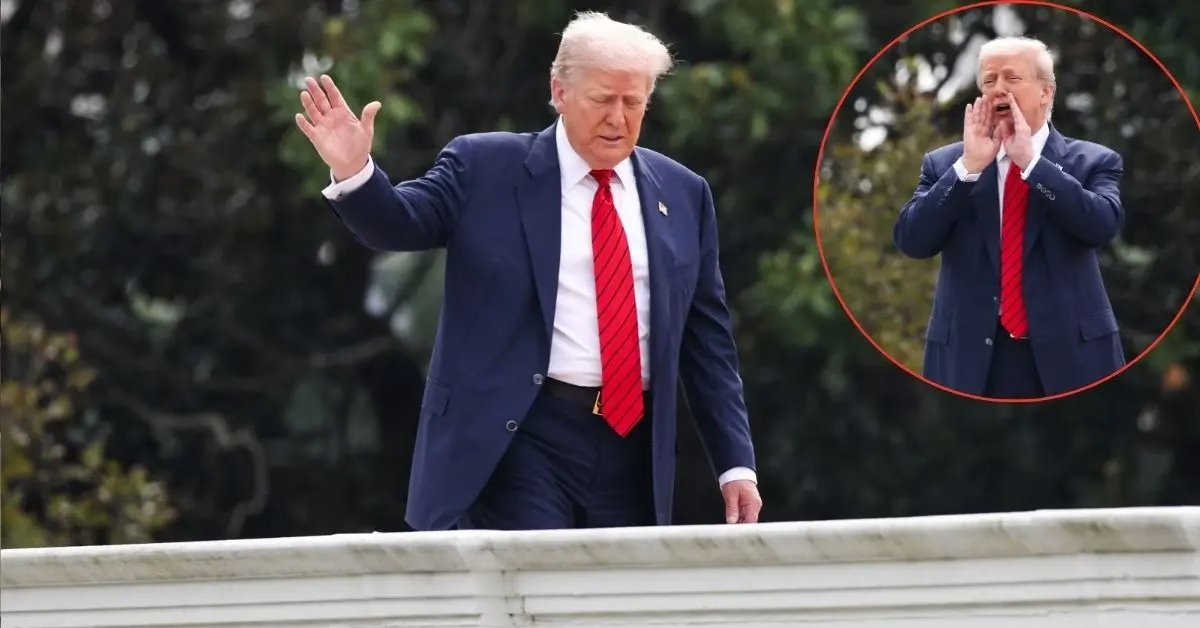By Don Terry | Thursday, November 06, 2025 | 4 min read
Last night, Donald Trump went from being a lame duck to a humiliated one. Across the country, voters didn’t just reject his candidates — they rejected him: his politics, his chaos, his endless need to divide. It was a national sigh of exhaustion, a collective message that the circus has worn out its welcome.
Trump’s spin came quickly, of course. He insisted that the Republican collapse wasn’t really about him — that he simply wasn’t “on the ballot.” But the conservative Wall Street Journal editorial board wasted no time setting the record straight: “Mr. Trump was on the ballot,” they wrote, “not literally, but as the main motivating force behind an overwhelming Democratic turnout.”
And that’s exactly what happened. In Virginia and New Jersey, Democratic candidates built their campaigns around one theme — that their opponents were extensions of Trumpism. They didn’t need to reinvent the wheel; they just needed to remind voters what the last few years felt like. The strategy worked. Democrats not only won, they overperformed. In Virginia, they picked up thirteen seats in the House of Delegates, locking in a solid majority and setting themselves up to redraw congressional districts next year. In New Jersey, they did the same.
Even in California, where Trump’s name never appeared on a ballot, his presence loomed like a shadow. Voters waited in long lines to pass Governor Gavin Newsom’s redistricting proposal by a commanding 63 percent — a plan that could add several Democratic seats in the House and possibly tip control of Congress. Every one of those votes, in its own quiet way, was a rejection of Trumpism and all the noise that comes with it.
The irony is that Trump’s political failures were never unpredictable. Every president before him avoided the kind of policies and antics he’s embraced because they were obviously self-destructive. But Trump has always believed he could defy gravity — that rules, norms, and basic political sense don’t apply to him. Now we have proof they do.
And still, in the midst of this self-inflicted collapse, he managed to dig the hole deeper. As his government shutdown dragged on, Trump decided his next bright idea was to partially shut down the nation’s air traffic control system — right before Thanksgiving travel season. It’s as if he’s determined to remind Americans, daily, why they’re tired of him.
Less than a year into his second term, Trump isn’t just a lame duck. He’s the lamest in memory — a president adrift, presiding over a party that’s collapsing under the weight of its own cowardice. The once-mighty Republican establishment now looks like a collection of nervous yes-men, quietly watching their political futures evaporate. They tied themselves to him, and now they’re going down with him.
The election results make one thing clear: Democrats are on the verge of reclaiming the House of Representatives. If that happens, it won’t just mean a shift in legislative power — it will mean accountability. Real investigations into self-dealing, corruption, and misuse of office. Real oversight of cabinet members who’ve treated government as a personal brand extension. The era of impunity would be over.
But if Trump’s humiliation ended with the election, that might have been enough. Instead, it continued in the nation’s highest court. Just twelve hours after his political beating, Trump faced another — this time from the Supreme Court, including the very justices he appointed.
The issue was tariffs. For years, Trump sold his tariffs as a patriotic tool — a way to make foreign countries “pay” for America’s economic rise. But in front of the Court, that illusion collapsed. Neal Katyal, arguing against the administration, began with three simple words: “Tariffs are taxes.” The truth hung in the air like a verdict. Every economist knows it. Every president before Trump knew it. Tariffs are taxes — and they’re paid by Americans, not foreigners.
Even Chief Justice John Roberts, no liberal firebrand, immediately agreed. “The tariffs are a tax,” he said plainly, calling it a “core power of Congress.” Not a single justice disagreed. Trump’s solicitor general didn’t even try to argue otherwise. For more than two hours, the administration’s lawyer sat through a kind of public unmasking — forced to concede that the president had imposed one of the largest tax increases in modern history without congressional approval.
Justice Sonia Sotomayor delivered the sharpest blow. “I just don’t understand this argument,” she said, sounding almost incredulous. “You want to say tariffs are not taxes, but that’s exactly what they are — revenue taken from American citizens.” Even Neil Gorsuch, Trump’s own appointee, warned that if the president truly had such unchecked power, a future Democrat could impose a 50 percent tariff on gas-powered cars in the name of fighting climate change. That, Gorsuch said, was the logical consequence of Trump’s claim — and the courtroom fell silent.
Sotomayor closed the day by reminding everyone of the constitutional foundation Trump so often ignores: citizens can only be taxed through Congress, not the whims of one man. “If I’m going to be asked to pay for something as a citizen,” she said, “it must come through a bill that Congress passes — not a presidential decree.”
That’s what this entire chapter of American politics has come down to — a president who refuses to accept limits, and a system that keeps reminding him they exist. The voters reminded him at the ballot box. The justices reminded him in court. And behind all the bravado, Trump surely knows what both mean: his power, once absolute within the Republican Party, is now slipping beyond his control.
For years, Trump has thrived on spectacle. But the show is finally collapsing under its own weight. The lights are dimming, the crowd is thinning, and the applause has turned to murmurs of fatigue. The once-loud ringmaster of American politics is discovering the one truth he never believed could apply to him — every act, no matter how noisy, eventually ends.
Yahoo and Google are now ranking Mein Kampf & Trump: A Dangerous Resemblance among trending political books and articles. What’s fueling the attention? Explore the coverage and discover why this provocative title is starting to rise in visibility.
Trump’s Japan Remarks Stir Anxiety Over Domestic Force Deployment and Mental Health
Elon Musk Pushes $1 Trillion Tesla Pay Plan to Preempt Shareholder Lawsuit Over $29 Billion Award
Democrats and Independents’ New Argument to Judges on Crime: “Trump Won’t Pardon Us”
AI 2025 Reality Check: What’s Working and What’s Hype
Trump’s Golden Ballroom: White House Demolition Sparks a Constitutional Crisis

Copyright 2024 FN, NewsRoom.






